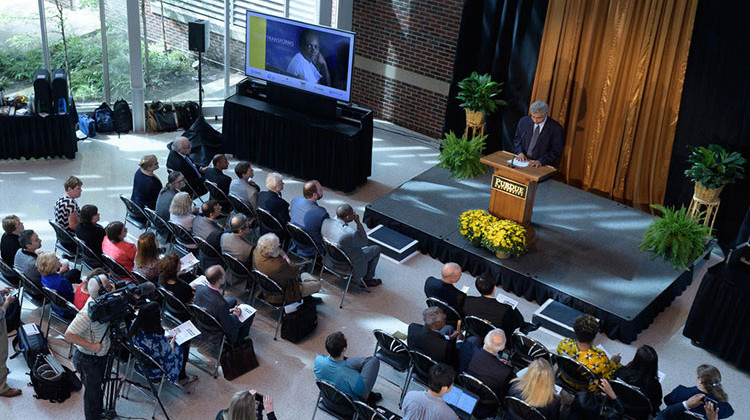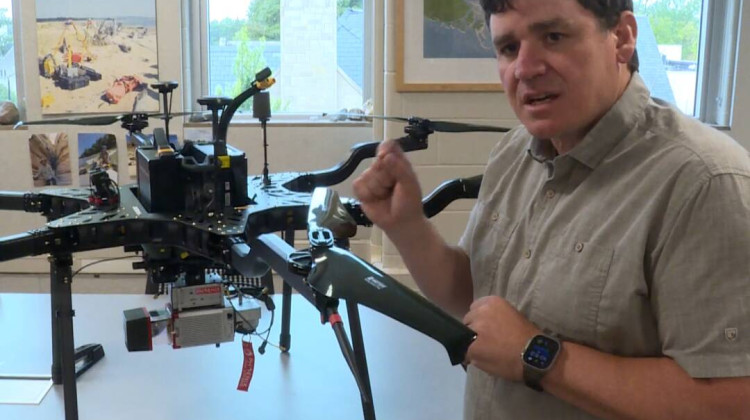
The announcement of the global health initiative was made at Purdue University.
Photo courtesy Purdue University/ John UnderwoodPurdue University has been chosen to lead a new research effort to address extreme poverty across the globe.
The university will receive a $70 million investment from the U.S. Agency for International Development, USAID, which aims to tackle some of the world’s biggest challenges.
Extreme poverty impacts the health of millions through food insecurity, water safety, disease and violence.
Purdue will lead the Partners for University Led Solutions Engines, PULSE, that includes a network of 50 institutions around the world including Indiana University and Notre Dame.
Co-academic director Yuehwern Yih says a major goal will be integration of patient care, an often overlooked part of health systems.
"Because you are not taking care of the patient from the overall system, you are just targeting one thing in that corner and hoping that corner is going to improve," Yih says.
She says countries' health systems often function in silos, addressing separate issues like immunization or HIV and many struggle with this.
"There is so many issues we see in Africa, it's the same issue we see in rural areas of the United States, it’s really not that different," Yih says.
University partners in low income countries are involved to help researchers understand the best ways to implement sustainable strategies.
"We don’t want to come in and give a solution that when we leave, comes with us," Yih says.
Yih says the collaboration will address issues through research and proven strategies. It aims to reach people in more than 120 countries.
 DONATE
DONATE








 Support WFYI. We can't do it without you.
Support WFYI. We can't do it without you.